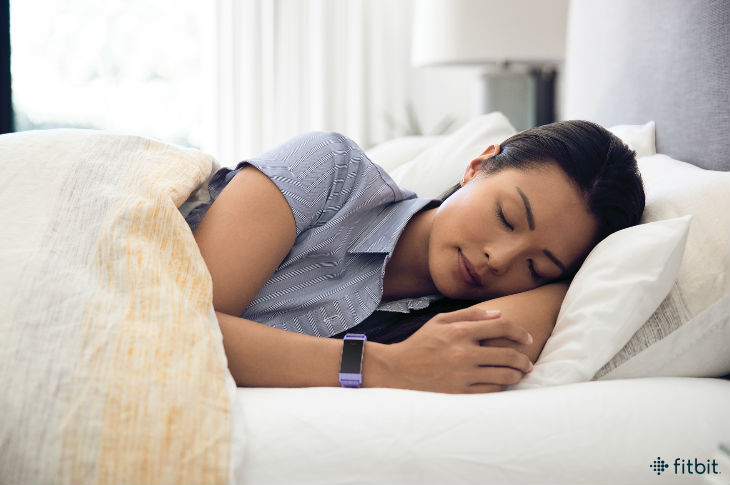
If you have trouble falling asleep when June or July rolls around, you’re not alone: Many people experience summertime insomnia. When it’s hot in your bedroom, it can be difficult to doze. “Studies have shown that up to a quarter of people might experience some sort of sleeping difficulty during the summer months,” says neurologist and sleep expert Pradeep Bollu, MD, with University of Missouri Health Care.
Feeling cool at night encourages sleepiness, but this may be hard to achieve during summer. “It’s actually hottest in late afternoon and evening, which is unfortunate, because that’s exactly when you want the temperature to start dropping,” says Michael Howell, MD, a sleep medicine physician and associate professor of neurology at the University of Minnesota Medical School.
Plus, when the sun stays out later, it can delay the melatonin release in your body, which helps signal that it’s time to feel sleepy before bedtime. So your body is getting mixed signals; you may actually feel tired if you woke up early and had a busy day, yet your body is not getting that crucial melatonin signal to wind down for the night. Darkness cues your body that it’s nearly bedtime.
Research has shown that people exposed to daylight during summer evenings may nod off later and have poorer sleep. “Light is one of the main cues that tells your brain whether to start producing or releasing melatonin, which then acts as a strong signal for sleeping,” says S. Justin Thomas, PhD, a sleep psychiatrist at the University of Alabama at Birmingham.
If you think you’re susceptible to summertime insomnia, try these ideas:
Wear blue-blockers
Daylight exposes you to stimulating blue light. Late sunsets mean that you may not feel tired when you’d normally get drowsy. But you’re likely to get as much, or more, blue light exposure from your smartphone, which in turn interferes with sleep. “The overall amount of brighter light that we get in the evenings in the summer versus winter has been masked to a large degree, due to all the light exposure that we get in our modern lives. When it’s wintertime, or even summertime, and the sun goes down, we barely notice, right? Because we’re on our phones and televisions and screens,” Howell points out.
Wearing blue-blockers—yellow-tinted sunglasses or clear computer glasses—for at least an hour before bedtime helps to block out the blue part of the spectrum (blue suppresses melatonin release). This fools the body into believing that it’s dark outside, encouraging it to produce sleep-promoting melatonin. “If someone is having sleeping difficulty during the summer months, I would recommend trying this strategy to lessen the blue light exposure,” Bollu says. “The melatonin secretion would be more robust when light exposure is minimal.”
Take a hot shower
This sounds counterintuitive on summer nights, but showering is relaxing, and afterwards, your body temperature drops, signaling that it’s bedtime. “We know that falling core body temperature is associated with rises in melatonin levels in the body,” Bollu says, “so it may be reasonable to assume that hot showers might promote melatonin secretion.”
To encourage your body temperature to drop even more, try cooling down the air in your bedroom with a fan or by opening the window. “The bedroom should be a couple of degrees cooler than how you normally have it,” Howell says.
Select cooling fabrics
Sheets and pajamas made from smart fabrics that wick away perspiration or contain cooling technology may help keep you comfortable. “Clothes that can absorb sweat can be helpful when it comes to sleeping better,” Bollu says. “Fabrics that regulate outside body temperature can also accomplish pretty much a similar thing: Lowering the core body temperature.”
If you’re skeptical of buying products, wear cotton pajamas or try simple tricks. “You know what pillow is really cool? The other side of the pillow that you’re currently sleeping on,” Howell says. “Err on the side of the simplest, least expensive option.”
Curtail nighttime calories
On summer nights, you may visit the ice cream parlor or get frozen piña coladas, but eating or drinking too close to bedtime can focus your body on digestion, not sleeping. “Food is a cue to your body of what time it is. If you have a consistent body rhythm of eating dinner at 6 o’clock [and] you go out and have a snack of ice cream at 8 o’clock in the evening, your body may say, ‘Oh, I guess it’s not time for us to shut down yet,’” Howell says.
Plus, alcohol can worsen insomnia or awaken you in the night. “People imagine alcohol helps them sleep because it’s sedating. Ultimately, it’s exactly the opposite of that, because even if you drink in moderation—a glass of wine, a cocktail, even if you have just 1 or 2 drinks—your liver metabolizes that alcohol, and in a couple of hours, you are not sedated, you are actually activated,” Howell points out.
“Your heart rate is a little higher,” he continues. (A quick glance at your Fitbit will tell you, too.) “Your blood pressure is a little higher. Your brain is a little more vivid. So either you may have trouble falling asleep, or you may have vivid dreams, wake up and then you can’t fall back asleep. That is just par for the course with alcohol—which is not to say that you can’t have a drink at all, but just know that. Don’t be surprised.”
If you can, avoid eating for two hours before bed. On nights when you can’t resist dessert or drinks, realize that you may have trouble falling asleep.
Create a consistent schedule
Establishing a morning routine can ease evening summertime insomnia. Awaken at the same time daily—weekends and holidays, too—and expose yourself to sunshine early. “I recommend light exposure in the morning,” Thomas says. “There is evidence that suggests light in the morning, afternoon and early evening is helpful for maintaining a consistent sleep-wake schedule.”
This information is for educational purposes only and is not intended as a substitute for medical diagnosis or treatment. You should not use this information to diagnose or treat a health problem or condition. Always check with your doctor before changing your diet, altering your sleep habits, taking supplements, or starting a new fitness routine.

If you have questions about a Fitbit tracker, product availability, or the status of your order, contact our Support Team or search the Fitbit Community for answers.
Please note: Comments are moderated and may not appear immediately after submission.